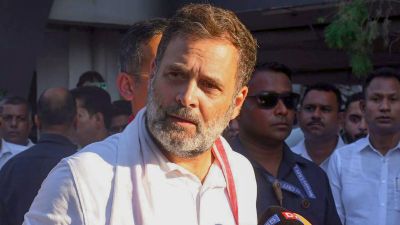Doing away with the Planning Commission, Prime Minister Narendra Modi said, was nothing short of a revolution. But five months into its term, its new avatar, the Niti Aayog, is grappling with issues not exactly revolutionary — from its members not being clear about where they stand in the establishment’s power map to a lack of clarity on what they need to push.
When Arvind Panagariya, former Chief Economist with the Asian Development Bank and an economics professor at Columbia University, was made Vice Chairman in early January, the buzz was unmistakable: author of the book Why Growth Matters (The Economist called it “a manifesto for policymakers and analysts”), he was the one who drove labour reforms in Rajasthan now being emulated by other states.

Today he isn’t invited to Cabinet meetings (not even the Cabinet Committee on Economic Affairs or CCEA) unlike his predecessor Montek Singh Ahluwalia.
[related-post]
Story continues below this ad
Reason: there’s no clear word on where he stands, by position.
Five months after he signed on, he is waiting for clarity from the Prime Minister who is also the chairman of the Aayog, on his status and that of his member colleagues, who were earlier given the status of minister of state.
“It is about sending a political message and utilising his (Panagariya’s) intellectual capital to influence policy,” said a top official who did not wish to be named. Panagariya’s initial appointment did accord him Cabinet Minister rank, but his pay was fixed at the Cabinet Secretary’s level making it clear that the Cabinet Minister rank was only for “warrant of precedence,” purposes.
In other words, only for show at state and ceremonial occasions with no substantive political heft. This was enough for the bureaucracy to immediately place him below ministers in the pecking order in day-to-day matters.
Story continues below this ad
“Before this confusion over his rank, when Panagariya called a meeting, it was attended by all Secretaries. In a meeting called after change in rank and pay, Secretaries sent across their juniors,” said a source. “It is for the Prime Minister to intervene in situations like these. The bureaucracy is the last in welcoming a foreign body into the system,” another source said.
Panagariya’s colleagues are economist Bibek Debroy and former bureaucrat V K Saraswat. While they take part in the meetings of the CM-led sub-groups, the narrative is set by the CMs and discussions, too, are led by them. Were it to be truly an independent think tank as envisaged, it should have been leading the discussions from the front.
A proposal to appoint Sanjeev Sanyal, global strategist with Deutsche Bank in Singapore, as Niti Aayog’s fourth member is hanging fire in the Prime Minister’s Office. The Planning Commission had eight full-time members.
On its functioning, too, sources said there is lack of clarity. For one, there has been no official division of labour among the members. Since its constitution, sources said, the Aayog is yet to know for sure if five-year plans have been dumped altogether.
Story continues below this ad
The confusion owes its genesis to a decision of the Aayog’s governing council, which includes all CMs besides the PM, that the Twelfth Five Year Plan, ending 2016-17, holds good and that the Niti Aayog should present a mid-term review of the Plan.
So, even as the Niti Aayog is staring at a significant 20-25 per cent shortfall in allocation vis-vis the targets set across various sectors in the beginning of the Twelfth Plan or 2012-13, there isn’t much it can do since all expenditure allocations — Plan and non-Plan — are now being undertaken by the finance ministry.
The Niti Aayog does not have any say on resource allocation after the government accepted the Finance Commission’s recommendation of a higher 42 per cent devolution of Central taxes and doing away of the Plan and non-Plan distinction.
At the first meeting of Niti Aayog’s governing council on February 8, the Prime Minister had announced the setting up of three sub-groups, each chaired by a state CM, on Centrally sponsored schemes, Swachh Bharat and skill development. Besides this, he also set up two task forces on elimination of poverty and agriculture development. The meetings of the task forces so far have been more like seminars, a source said.
Story continues below this ad
The governing council of the Niti Aayog, in effect, replaces the National Development Council, the high powered body of CMs and PM hitherto. “The NDC was set up following a Cabinet decision. Even if NDC has to be replaced by the governing council, the Cabinet has to formally approve it and give it legitimacy. That is also awaited.
When contacted, a senior Niti Aayog official said, “It’s been only five months. The mid-term review is more or less ready but needs political direction. There were teething problems which have taken some time as it happens in government.”

 He has Cabinet rank — but only for protocol; not invited to Cabinet meetings.
He has Cabinet rank — but only for protocol; not invited to Cabinet meetings.






